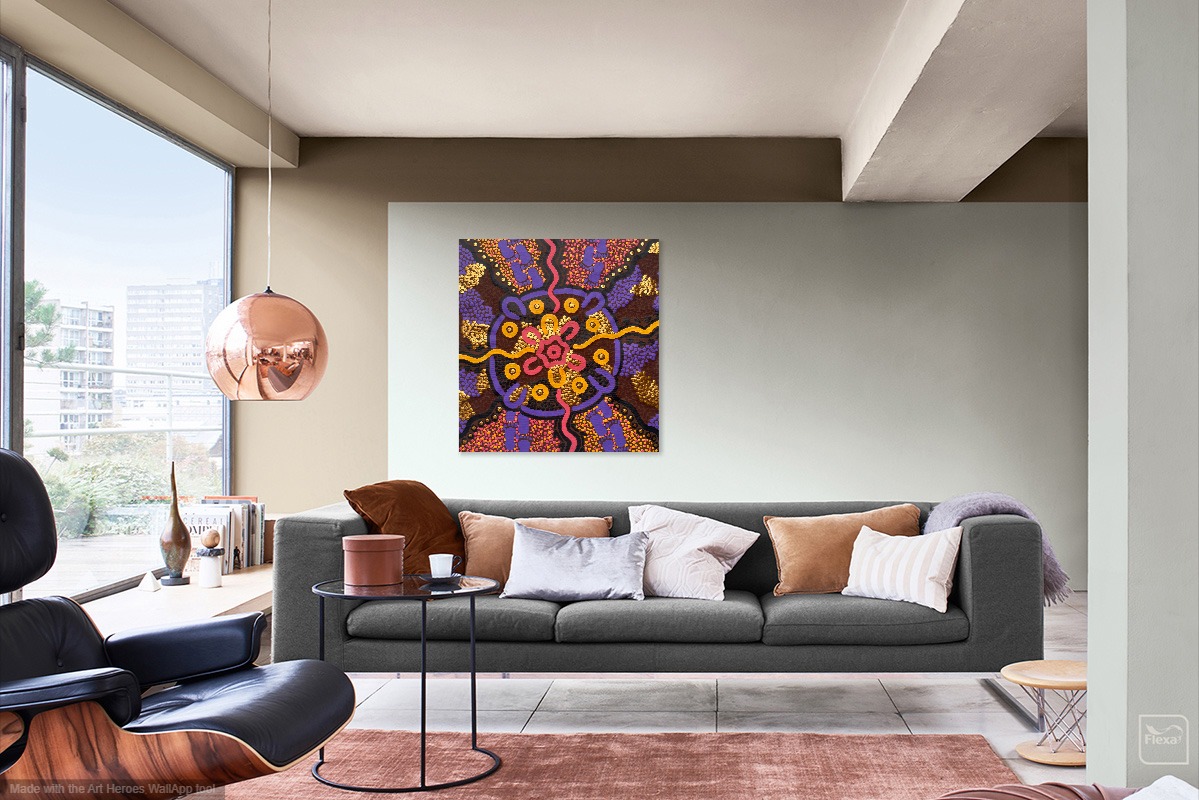
Aboriginal kinship and family structures are still cohesive forces which bind Aboriginal people together in all parts of Australia. Traditionally the Aboriginal family was a collaboration of clans composed of mothers, fathers, uncles, aunties, sisters, brothers, cousins and so on. In today’s terms it is known as an extended family . For Aboriginal people their family provides psychological and emotional support which is important to their wellbeing.
Aboriginal family obligations, often are seen as nepotism by other Australians, and are not strictly nuclear families. The structure of Aboriginal families reflects cultural values and involving kinship responsibilities.
For Aboriginal people kinship and family are especially import. Aboriginal people have family and kinship responsibilities that are not typical of non-Aboriginal families.
Aboriginal people get things done through working through their family and kinship structures.
Out of stock
Ready to become an art collector? Read more information and answers to frequently asked questions about this collector's item below.

I acknowledge and pay respect to the Traditional Custodians of the land we live and work on. I extend my respects to Elders, both past, present and emerging; and recognise the continuing connection to lands, waters and communities of all Aboriginal and Torres Strait Islander peoples today.